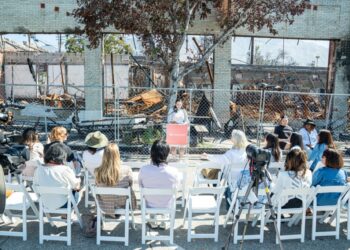A funny thing happened during the rollout of a weighty ballot measure that would radically change the governance of Los Angeles County: cities began to chime in.
At first glance, this seems counterintuitive. Why should the 88 cities in the county care one iota about Measure G, which would expand the number of seats on the county Board of Supervisors; make changes to the inner workings of county government by tightening up ethics policies and requiring longer periods for airing department budgets.
For the 1 million unincorporated residents and their communities, the measure is directly applicable. The supervisors are essentially their mayors and city council members. They determine everything from parking restrictions to street sweeping, and more recently rules for short-term housing rentals, to name a few.
However, municipalities have their own city charters and thus their own elected city councils that adopt their own city ordinances. Hence, they are mostly unaffected by county ordinances.
But the ties that bind cities with the county show up as other entanglements.
City-county connections
Many cities rely heavily on county services, including 42 cities that contract with the Los Angeles County Sheriff’s Department for law enforcement. Cities must negotiate the cost for these services, but the Board of Supervisors holds the purse strings.
The “contracting out” goes beyond the Sheriff’s Department for cities without their own police and often includes services from the Los Angeles County Fire Department. Dozens of smaller cities also contract with the county Public Works Department and Department of Animal Care and Control.
Even non-contract cities are dependent on the county for public health services. The county has a combination of 27 hospitals and public clinics. During the COVID-19 pandemic, the county’s Department of Public Health set policies for quarantine orders and established clinics for free vaccines.
For help with the homeless problem, cities…
Read the full article here







